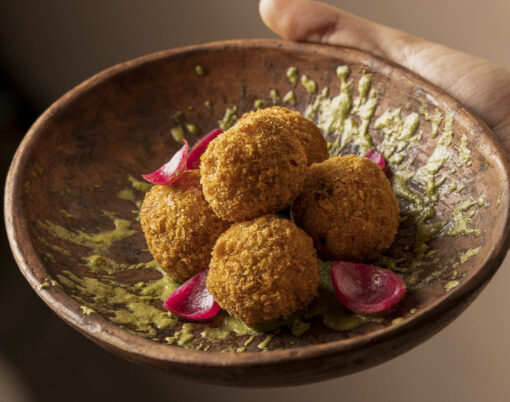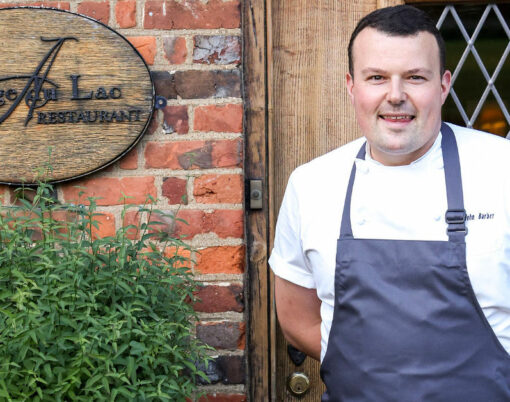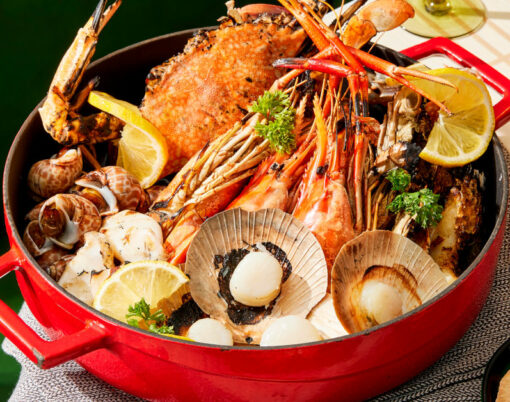Giving your baby the best possible start in life with optimal nutrition is a concern that weighs heavily on many new mothers’ minds, and choosing what kind of milk to give them and how to administer it is one of the first great debates of parenthood.
Realising it’s time to wean your baby onto solid foods can make for an exciting milestone once that first obstacle has been put to bed, and will pave the way for many exciting family foodie adventures ahead. But navigating the journey from breast milk and formula alone can often feel overwhelming – particularly if you don’t quite know where to start.
Providing your baby with a balanced diet is essential to ensure they are getting all of the nutrients they need to grow and develop, and will help them to get used to a range of different tastes and textures so that they can enjoy eating from early on. By following a few simple guidelines, you can make the entire process as smooth and hassle free as possible, so here’s all you need to know before you take the plunge.
The great milk debate: Is breast really best?

According to the experts, mothers are recommended to feed their babies only breast milk for six months if possible, and continue breastfeeding for at least one year. However, this isn’t always an option, and health issues, birth complications and a range of other factors can often influence how you administer milk.
The good news is that modern baby formulas have come a long way since the early days, so not being able to breastfeed doesn’t have to impact negatively upon your offspring’s health. Online stores like Organic Life Start provide mothers and their babies with a range of different formulas to suit tots of all ages, including dairy free and hypoallergenic alternatives, with a much wider range than you’re likely to find on the shelves of your nearest shop – so whatever your youngster’s dietary needs, you’ll be able to find a formula that’s just right for them.
Top tips for weaning

With so many different foods to introduce your baby to, it can be tough to know where to begin – but knowing what exactly their nutritional needs are will give you a ‘solid’ foundation, if you’ll excuse the pun.
First and foremost, it’s important not to overload your youngster’s delicate digestive system with too much fibre, as while babies require plenty of calories for growth, their stomachs are small. Because fibre is bulky, it can quickly fill the space, leaving no room for all those nutritionally-rich foods – so be sure to keep it minimal in those all-important early days.
Avoid adding salt or sugar to foods when weaning your baby, as while too much sugar is bad for emerging teeth, too much salt can put stress on their developing kidneys. By feeding them foods as they come, you’ll allow them to really taste them and get a feel for what they like and don’t like. Plus, introducing them to sugar early on could mean you’re making a rod for your own back when they get a taste for sweets and chocolate and you find yourself scrabbling for ways to discourage them!
All food should be fed to babies in blended, puree form – starting with fruits and vegetables is a great way to start. While shop-bought jars of baby food are good options for busy working mothers, you can’t beat homemade, unprocessed fruit and vegetable purees, and making them yourself means you have full control over what goes into them. No nasty additives or preservatives, and you can use only organic produce if you want to make extra sure your baby isn’t being exposed to chemicals or pesticides.
What is a balanced diet for babies?

Your baby’s weaning diet should comprise all of the five major food groups – that’s fruits and vegetables, breads and starchy foods, dairy, meat and proteins, and healthy fats.
Protein is a vital inclusion, and serves as the building block for cells, muscles, bones and the brain. As your baby gets used to eating solid foods, adding a protein at each meal time will ensure they are always getting enough – eggs, fish, pulses and dairy products are all good sources, as are lean meats.
A growing baby requires plenty of Vitamin D, as this helps the body to efficiently absorb calcium, which is essential for healthy bones and teeth. It also aids development, so be sure to add some into your baby’s diet daily – good sources include oily fish like sardines and salmon (which also contain essential fatty acids, which are needed for optimal brain health) along with yoghurts and cheese. Calcium can also be found in dairy products, so ensure they are getting their daily dose.
Vitamins A and C are also important, so load them up with fresh produce in a rainbow of different colours to ensure they are getting plenty of both – and add iron sources like red meat and leafy green vegetables to their plates when you can to ensure baby’s blood cells can carry plenty of oxygen to their organs and muscles and facilitate normal brain development.






















